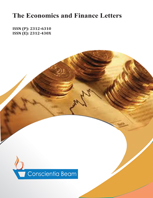The Investment Performance of Socially Responsible Investment in Japan
DOI:
https://doi.org/10.18488/journal.29/2016.3.1/29.1.1.7Abstract
This paper examines the performance and risk sensitivities of Japanese ethical mutual funds vis-à-vis their conventional peers between 2005 and 2014, focusing upon the impact of the recent financial crisis. More specifically, in doing so, I investigate the aggregated performance and investment style of ethical and conventional mutual funds and allow for time variation in the funds’ systematic risk. The empirical results are consistent with the evidence of asymmetric performance before-and-after the structural change, which is identified by Bai and Perrons’ structural break test. The Japanese evidence supports the conjecture that any performance differential between ethical mutual funds and their conventional peers is statistically insignificant.

